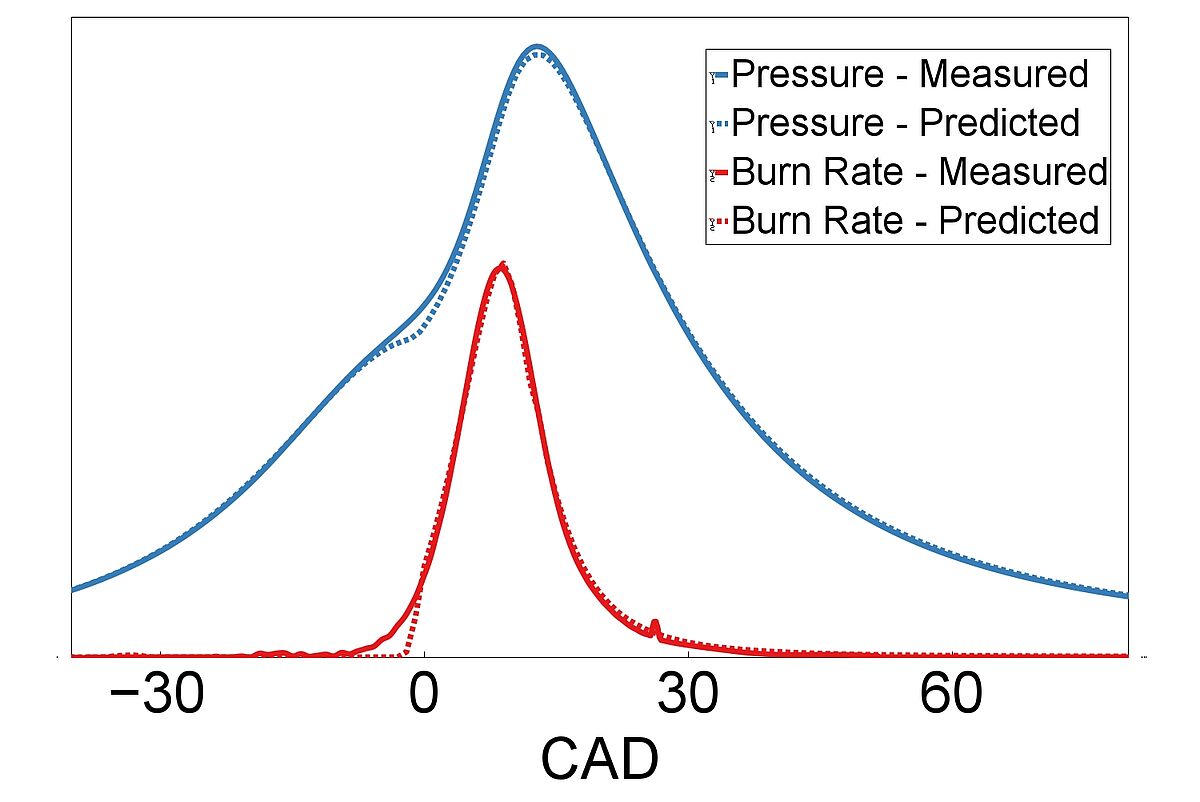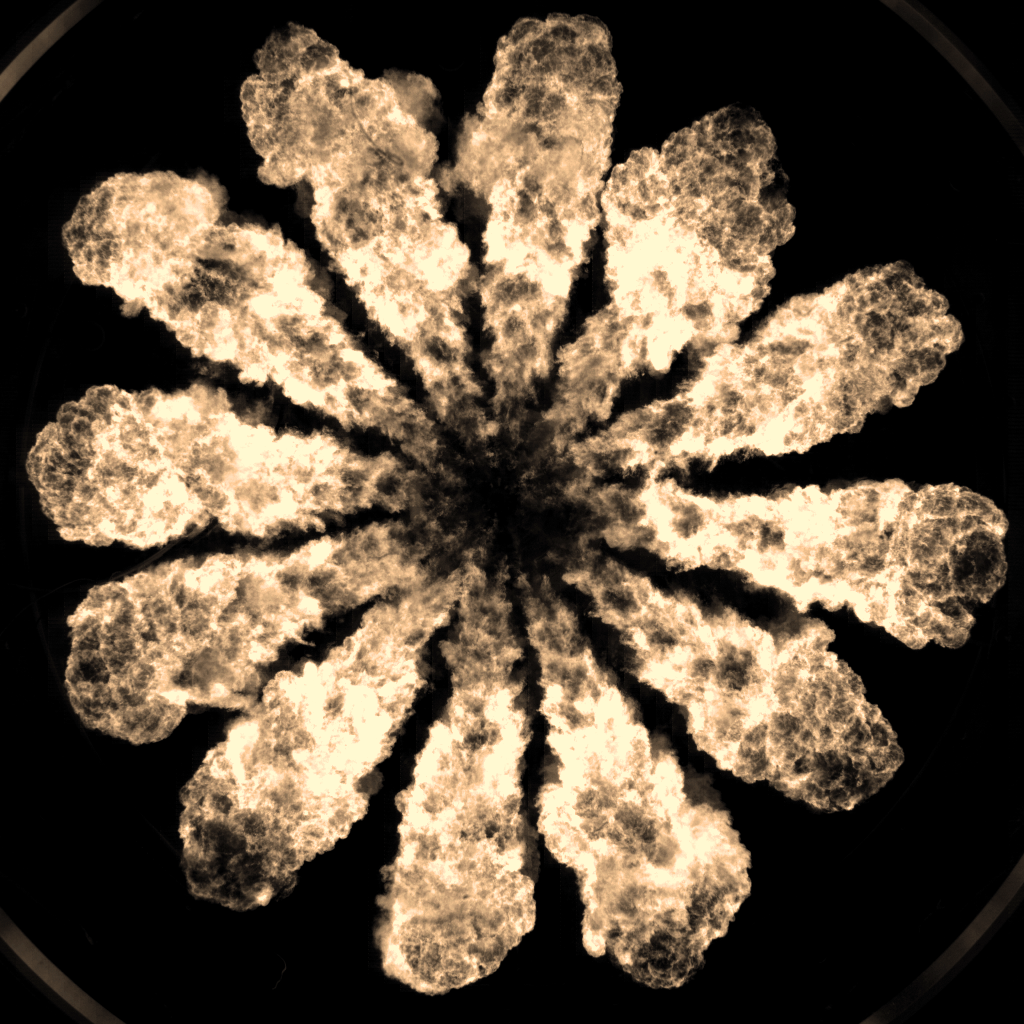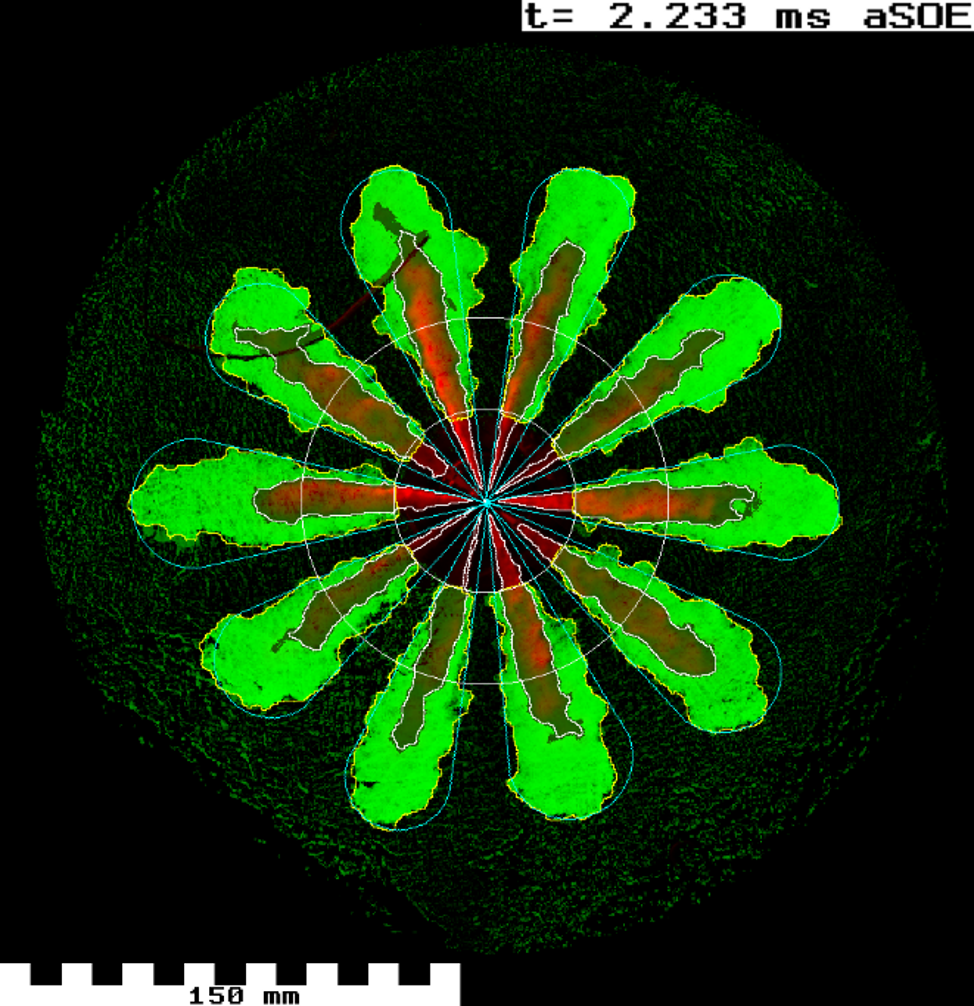AmmoniaMotII
- Development of a full-scale demonstrator engine with modularised fuel system technology for operation with renewable ammonia as a marine fuel
- Sub-project: Experimentally supported development of 0D/1D simulation methods for analysing the effects of renewable ammonia on lubricating oil, injector and exhaust gas aftertreatment technology when used in large engines
NH3 Combustion Process Simulation
•Development of 0D/1D cylinder models for LP-PFI
and HP-DI ammonia combustion processes
•Simulation-based concept comparison
of LP-PFI vs. HP-DI
•Development of predictive combustion models
Exhaust Gas Aftertreatment
- Catalyst pre- & detail screening under synthetic gas conditions
- Investigation of hydrothermal aging and long-term functionality
- Development of 0D/1D model for simulation of exhaust gas aftertreatment components & systems
- Development of suitable aftertreatment technologies for NH3 fueled marine engines
Lubrication Oil Analysis
- Development of novel analytical methods for the characterisation of engine lubricating oils for the use of ammonia as a marine fuel
- Analysis of interactions & reactions between engine lubricating oil and ammonia
- Analysis of impact of ammonia-contaminated engine lubricating oil on engine components
Funding organisation: BMWK/PtJ
Project duration: 01.05.2024 - 30.01.2028
Funding volume: €2,636,771 (LKV)
Responsible Colleagues:
- Prof. Dr.-Ing. Bert Buchholz
- Dr. Ulrike Schümann
- Niklas Gierenz
- Erwin Swiderski
- Dr. Fabian Pinkert
- Uwe Etzien
- Jules Christopher Dinwoodie
- Celina Hannemann
- Richard Tröltzsch
Project Partners:
- Everllence (formerly MAN Energy Solutions SE)
- WTZ Roßlau gGmbH
- Woodward L'Orange GmbH
- SFM TU-Munich
- Neptun Ship Design GmbH
- GenSys GmbH
- MNR GmbH








